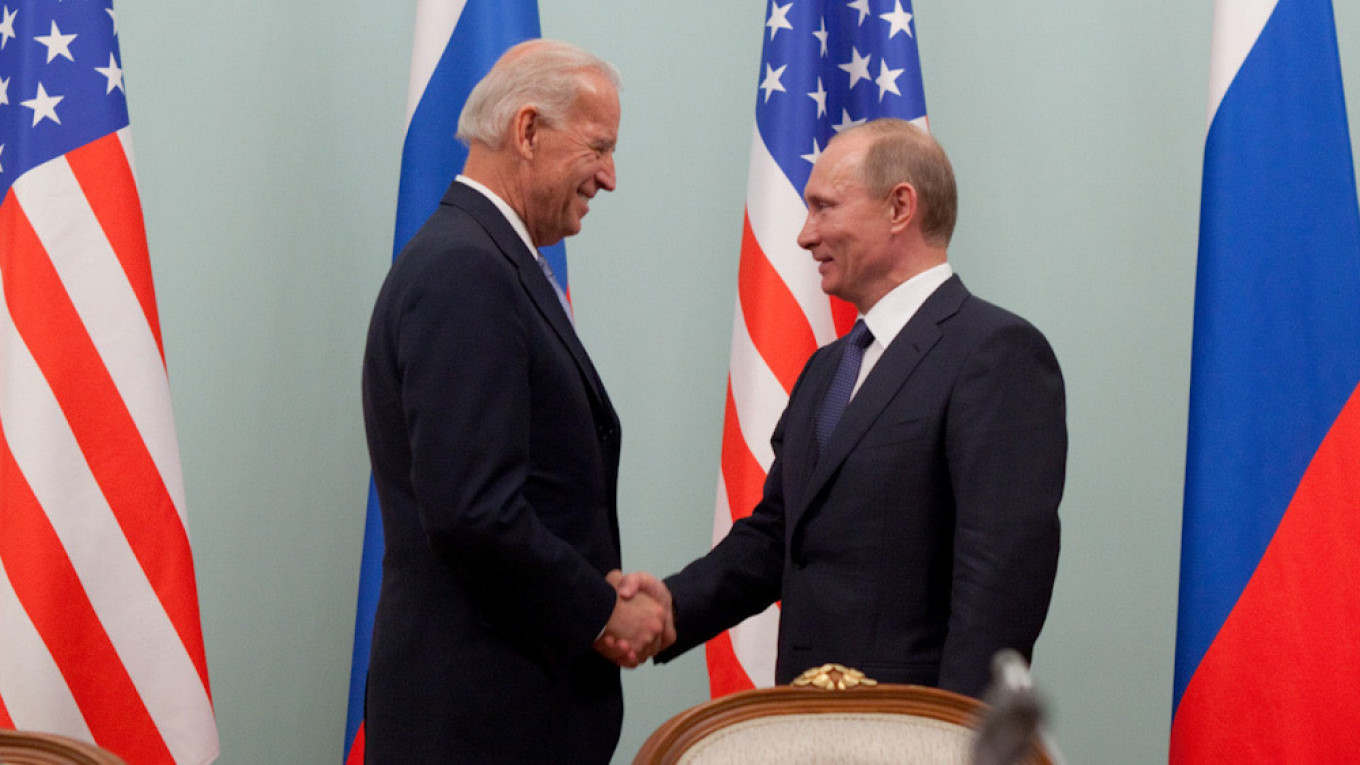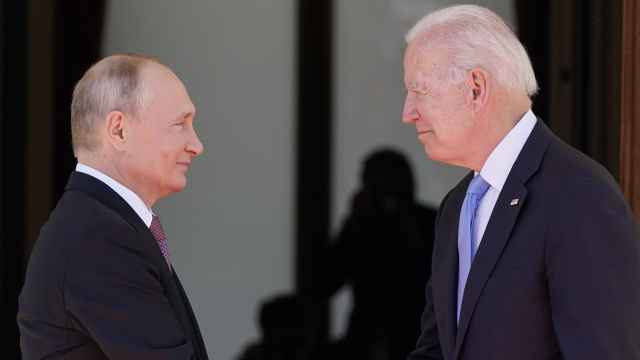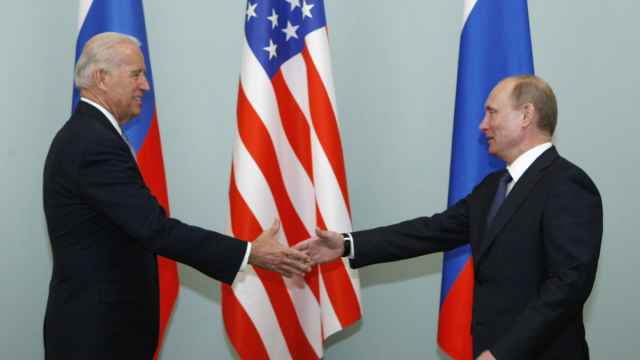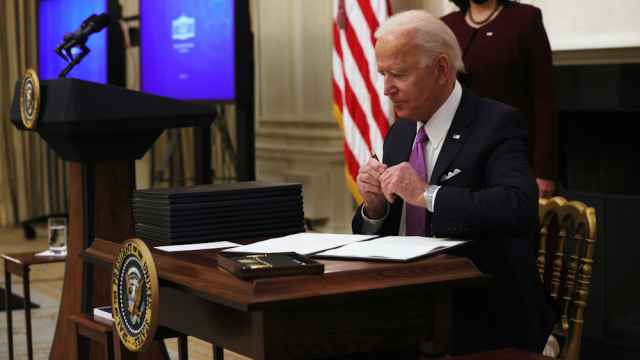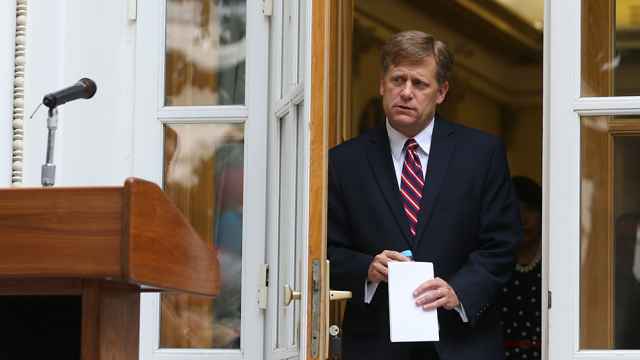President Joe Biden signaled a tougher U.S. stance on Russia on Tuesday in his first phone call with President Vladimir Putin, raising concerns over human rights and "aggression" against Ukraine, but welcoming cooperation on a new nuclear weapons accord.
The call was initiated by the White House to discuss progress on extending the New START deal, which limits the two powers to a maximum of 1,550 deployed nuclear warheads each and expires Feb. 5. An agreement now appears to be close.
But White House Press Secretary Jen Psaki said Biden also raised a raft of worries about the Russian authorities' treatment of opposition members, including the "poisoning of Alexei Navalny."
The opposition leader and anti-corruption crusader nearly died last year from a poisoning he says he has proved was carried out by the security services, something Putin denies. Navalny is currently imprisoned in Moscow and over the weekend, police made mass arrests of people demonstrating in his support across the country.
Showing Moscow and Washington are still able to cooperate separately on nuclear issues, the White House said Biden and Putin had agreed to "work urgently" to wrap up negotiations on a fresh five-year period for the New START treaty ahead of its expiry.
The Kremlin said that in their call Putin and Biden "expressed satisfaction" over talks and the Russian leader later submitted a bill to parliament on the five-year extension.
In Washington, a State Department official who asked not to be identified said the two sides had "reached agreement... to proceed quickly to conclude such an agreement by February 5."
The moves raised hopes for more stability between the world's two most heavily armed nations, drawing a line under the uncertainty that entered under Donald Trump, whom Biden replaced just last week.
The Trump administration had offered a one-year extension ahead of the February deadline but discussions broke down over U.S. insistence on tougher verification that Russia had frozen its nuclear arsenal.
Human rights
However, Biden also diverged strongly with Trump on his approach to Russia's human rights record and Ukraine.
Trump went to great lengths while in power to avoid raising complaints about human rights abuses in Russia or criticizing Moscow's support for separatists in Ukraine and occupation of Crimea. Biden confronted Putin on both issues.
He brought up "our strong support for Ukraine's sovereignty in the face of Russia's ongoing aggression," Psaki said.
She also enumerated a long sequence of other "matters of concern" causing friction in Washington.
These included the unprecedented mass hacking of U.S. computers that has been widely blamed on Russia, interference in the 2020 presidential election and reports that Moscow offered bounties for the killing of U.S. soldiers in Afghanistan.
In addition to raising Navalny's case, Biden flagged the "treatment of peaceful protesters by Russian security forces."
Psaki said Biden's "intention was also to make clear that the United States will act firmly in defense of our national interests in response to malign actions by Russia."
The Kremlin made no mention of these complaints in its readout of the call, saying instead that Putin urged "normalization of relations."
This would "meet the interests of both countries," the Kremlin said in a statement, describing the two countries as having "special responsibility for maintaining security and stability in the world."
A Message from The Moscow Times:
Dear readers,
We are facing unprecedented challenges. Russia's Prosecutor General's Office has designated The Moscow Times as an "undesirable" organization, criminalizing our work and putting our staff at risk of prosecution. This follows our earlier unjust labeling as a "foreign agent."
These actions are direct attempts to silence independent journalism in Russia. The authorities claim our work "discredits the decisions of the Russian leadership." We see things differently: we strive to provide accurate, unbiased reporting on Russia.
We, the journalists of The Moscow Times, refuse to be silenced. But to continue our work, we need your help.
Your support, no matter how small, makes a world of difference. If you can, please support us monthly starting from just $2. It's quick to set up, and every contribution makes a significant impact.
By supporting The Moscow Times, you're defending open, independent journalism in the face of repression. Thank you for standing with us.
Remind me later.


